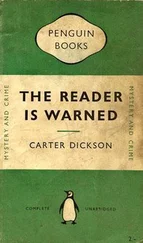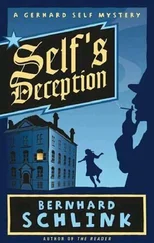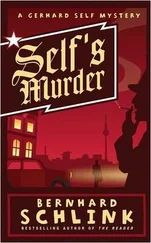I think back to that time and I see my former self. I wore the well-cut suits which had come down to me from a rich uncle, now dead, along with several pairs of two-tone shoes, black and brown, black and white, suede and calf. My arms and legs were too long, not for the suits, which my mother had let down for me, but for my own movements. My glasses were a cheap over-the-counter pair and my hair a tangled mop, no matter what I did. In school I was neither good nor bad; I think that many of the teachers didn’t really notice me, nor did the students who dominated the class. I didn’t like the way I looked, the way I dressed and moved, what I achieved and what I felt I was worth. But there was so much energy in me, such belief that one day I’d be handsome and clever and superior and admired, such anticipation when I met new people and new situations. Is that what makes me sad? The eagerness and belief that filled me then and exacted a pledge from life that life could never fulfill? Sometimes I see the same eagerness and belief in the faces of children and teenagers and the sight brings back the same sadness I feel in remembering myself. Is this what sadness is all about? Is it what comes over us when beautiful memories shatter in hindsight because the remembered happiness fed not just on actual circumstances but on a promise that was not kept?
She-I should start calling her Hanna, just as I started calling her Hanna back then-she certainly didn’t nourish herself on promises, but was rooted in the here and now.
I asked her about her life, and it was as if she rummaged around in a dusty chest to get me the answers. She had grown up in a German community in Rumania, then come to Berlin at the age of sixteen, taken a job at the Siemens factory, and ended up in the army at twenty-one. Since the end of the war, she had done all manner of jobs to get by. She had been a streetcar conductor for several years; what she liked about the job was the uniform and the constant motion, the changing scenery and the wheels rolling under her feet. But that was all she liked about it. She had no family. She was thirty-six. She told me all this as if it were not her life but somebody else’s, someone she didn’t know well and who wasn’t important to her. Things I wanted to know more about had vanished completely from her mind, and she didn’t understand why I was interested in what had happened to her parents, whether she had had brothers and sisters, how she had lived in Berlin and what she’d done in the army. “The things you ask, kid!”
It was the same with the future-of course I wasn’t hammering out plans for marriage and future. But I identified more with Julien Sorel’s relationship with Madame de Renal than his one with Mathilde de la Mole. I was glad to see Felix Krull end up in the arms of the mother rather than the daughter. My sister, who was studying German literature, delivered a report at the dinner table about the controversy as to whether Mr. von Goethe and Madame von Stein had had a relationship, and I vigorously defended the idea, to the bafflement of my family. I imagined how our relationship might be in five or ten years. I asked Hanna how she imagined it. She didn’t even want to think ahead to Easter, when I wanted to take a bicycle trip with her during the vacation. We could get a room together as mother and son, and spend the whole night together.
Strange that this idea and suggesting it were not embarrassing to me. On a trip with my mother I would have fought to get a room of my own. Having my mother with me when I went to the doctor or to buy a new coat or to be picked up by her after a trip seemed to me to be something I had outgrown. If we went somewhere together and we ran into my schoolmates, I was afraid they would think I was a mama’s boy. But to be seen with Hanna, who was ten years younger than my mother but could have been my mother, didn’t bother me. It made me proud.
When I see a woman of thirty-six today, I find her young. But when I see a boy of fifteen, I see a child. I am amazed at how much confidence Hanna gave me. My success at school got my teachers’ attention and assured me of their respect. The girls I met noticed and liked it that I wasn’t afraid of them. I felt at ease in my own body.
The memory that illuminates and fixes my first meetings with Hanna makes a single blur of the weeks between our first conversation and the end of the school year. One reason for that is we saw each other so regularly and our meetings always followed the same course. Another is that my days had never been so full and my life had never been so swift and so dense. When I think about the work I did in those weeks, it’s as if I had sat down at my desk and stayed there until I had caught up with everything I’d missed during my hepatitis, learned all the vocabulary, read all the texts, worked through all the theorems and memorized the periodic table. I had already done the reading about the Weimar Republic and the Third Reich while I was in my sickbed. And I remember our meetings in those weeks as one single long meeting. After our conversation, they were always in the afternoon: if she was on the late shift, then from three to four-thirty, otherwise until five-thirty. Dinner was at seven, and at first Hanna forced me to be home on time. But after a while an hour and a half was not enough, and I began to think up excuses to miss dinner.
It all happened because of reading aloud. The day after our conversation, Hanna wanted to know what I was learning in school. I told her about Homer, Cicero, and Hemingway’s story about the old man and his battle with the fish and the sea. She wanted to hear what Greek and Latin sounded like, and I read to her from the Odyssey and the speeches against Cataline.
“Are you also learning German?”
“How do you mean?”
“Do you only learn foreign languages, or is there still stuff you have to learn in your own?”
“We read texts.” While I was sick, the class had read Emilia Galotti and Intrigues and Love, and there was an essay due on them. So I had to read both, which I did after finishing everything else. By then it was late, and I was tired, and next day I’d forgotten it all and had to start all over again.
“So read it to me!”
“Read it yourself, I’ll bring it for you.”
“You have such a nice voice, kid, I’d rather listen to you than read it myself.”
“Oh, come on.”
But next day when I arrived and wanted to kiss her, she pulled back. “First you have to read.”
She was serious. I had to read Emilia Galotti to her for half an hour before she took me into the shower and then to bed. Now I enjoyed showering too-the desire I felt when I arrived had got lost as I read aloud to her. Reading a play out loud so that the various characters are more or less recognizable and come to life takes a certain concentration. Lust reasserted itself under the shower. So reading to her, showering with her, making love to her, and lying next to her for a while afterwards-that became the ritual in our meetings.
She was an attentive listener. Her laugh, her sniffs of contempt, and her angry or enthusiastic remarks left no doubt that she was following the action intently, and that she found both Emilia and Luise to be silly little girls. Her impatience when she sometimes asked me to go on reading seemed to come from the hope that all this imbecility would eventually play itself out. “Unbelievable!” Sometimes this made even me eager to keep reading. As the days grew longer, I read longer, so that I could be in bed with her in the twilight. When she had fallen asleep lying on me, and the saw in the yard was quiet, and a blackbird was singing as the colors of things in the kitchen dimmed until nothing remained of them but lighter and darker shades of gray, I was completely happy.
Читать дальше












